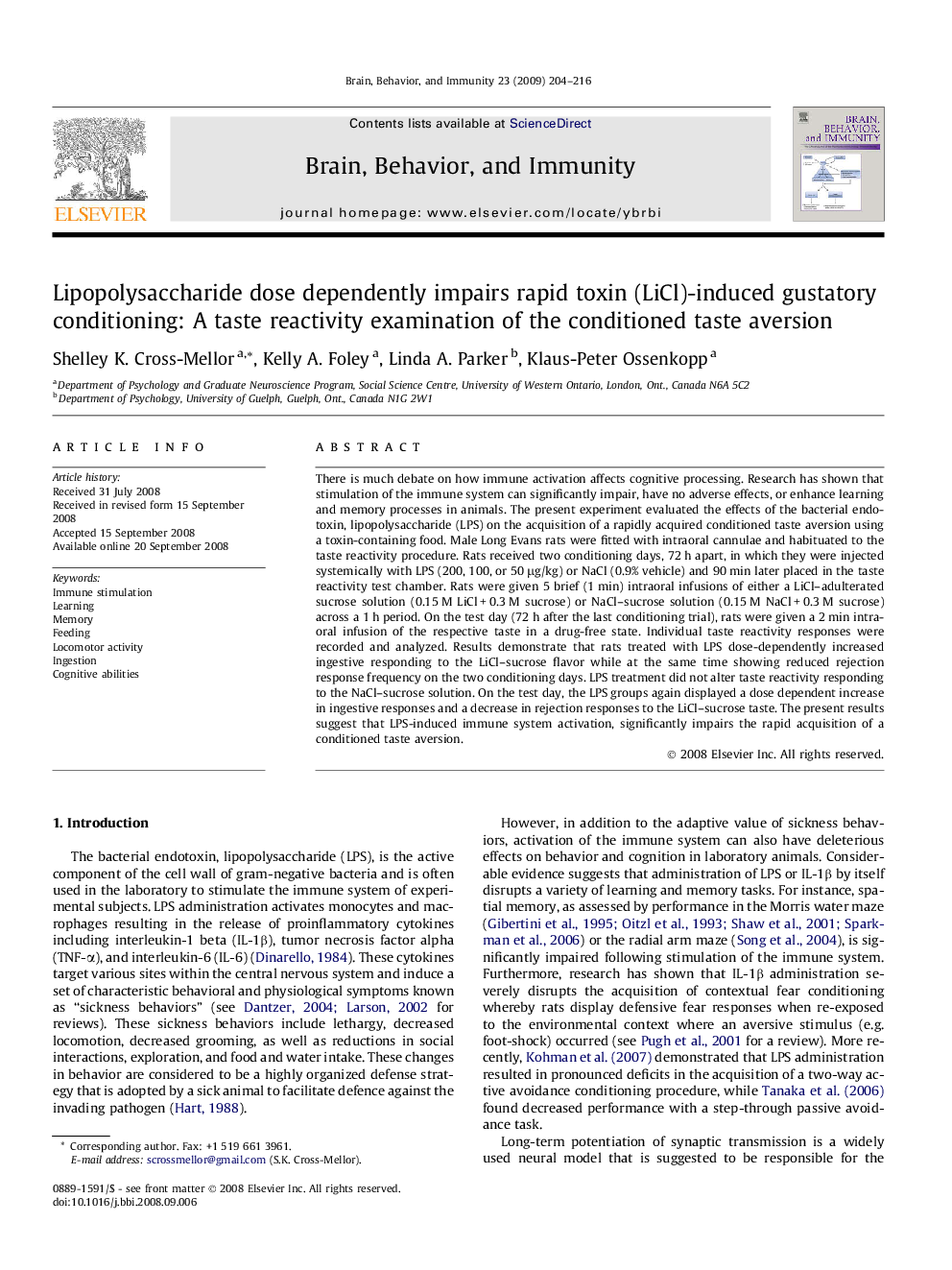| Article ID | Journal | Published Year | Pages | File Type |
|---|---|---|---|---|
| 10455002 | Brain, Behavior, and Immunity | 2009 | 13 Pages |
Abstract
There is much debate on how immune activation affects cognitive processing. Research has shown that stimulation of the immune system can significantly impair, have no adverse effects, or enhance learning and memory processes in animals. The present experiment evaluated the effects of the bacterial endotoxin, lipopolysaccharide (LPS) on the acquisition of a rapidly acquired conditioned taste aversion using a toxin-containing food. Male Long Evans rats were fitted with intraoral cannulae and habituated to the taste reactivity procedure. Rats received two conditioning days, 72 h apart, in which they were injected systemically with LPS (200, 100, or 50 μg/kg) or NaCl (0.9% vehicle) and 90 min later placed in the taste reactivity test chamber. Rats were given 5 brief (1 min) intraoral infusions of either a LiCl-adulterated sucrose solution (0.15 M LiCl + 0.3 M sucrose) or NaCl-sucrose solution (0.15 M NaCl + 0.3 M sucrose) across a 1 h period. On the test day (72 h after the last conditioning trial), rats were given a 2 min intraoral infusion of the respective taste in a drug-free state. Individual taste reactivity responses were recorded and analyzed. Results demonstrate that rats treated with LPS dose-dependently increased ingestive responding to the LiCl-sucrose flavor while at the same time showing reduced rejection response frequency on the two conditioning days. LPS treatment did not alter taste reactivity responding to the NaCl-sucrose solution. On the test day, the LPS groups again displayed a dose dependent increase in ingestive responses and a decrease in rejection responses to the LiCl-sucrose taste. The present results suggest that LPS-induced immune system activation, significantly impairs the rapid acquisition of a conditioned taste aversion.
Related Topics
Life Sciences
Immunology and Microbiology
Immunology
Authors
Shelley K. Cross-Mellor, Kelly A. Foley, Linda A. Parker, Klaus-Peter Ossenkopp,
